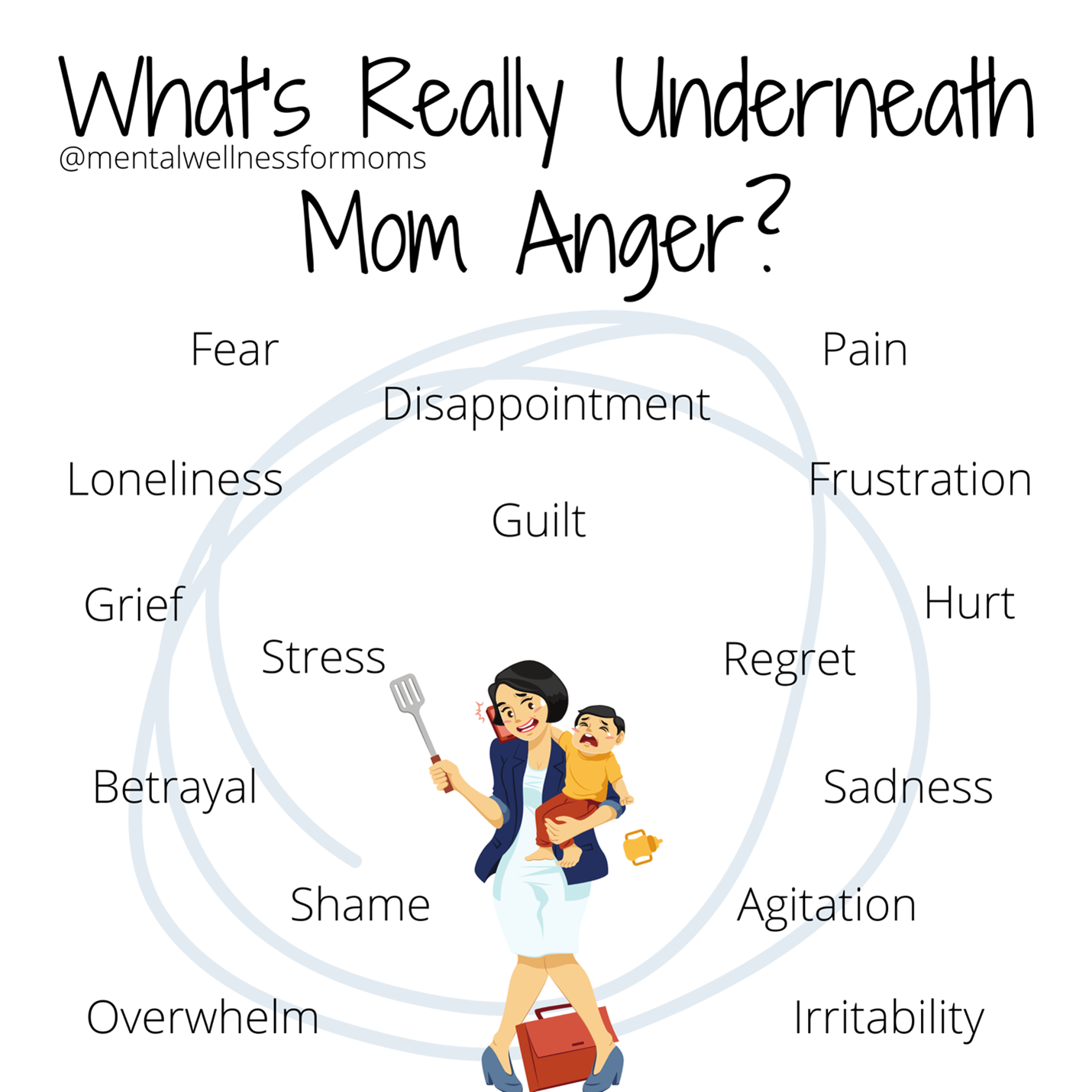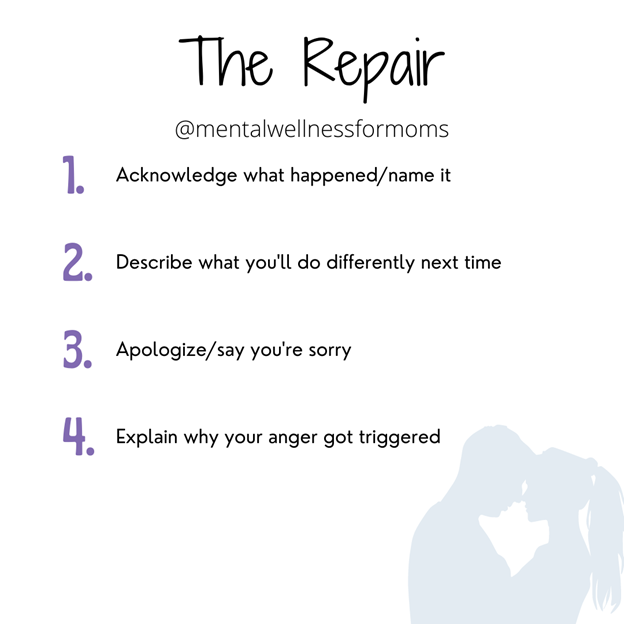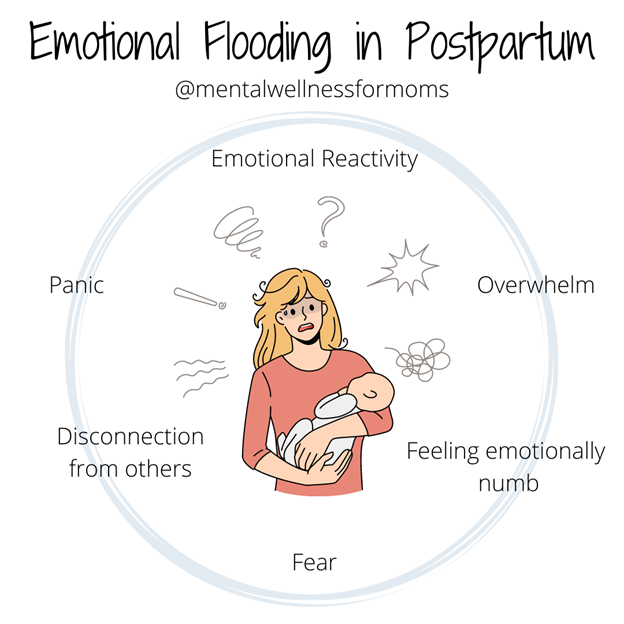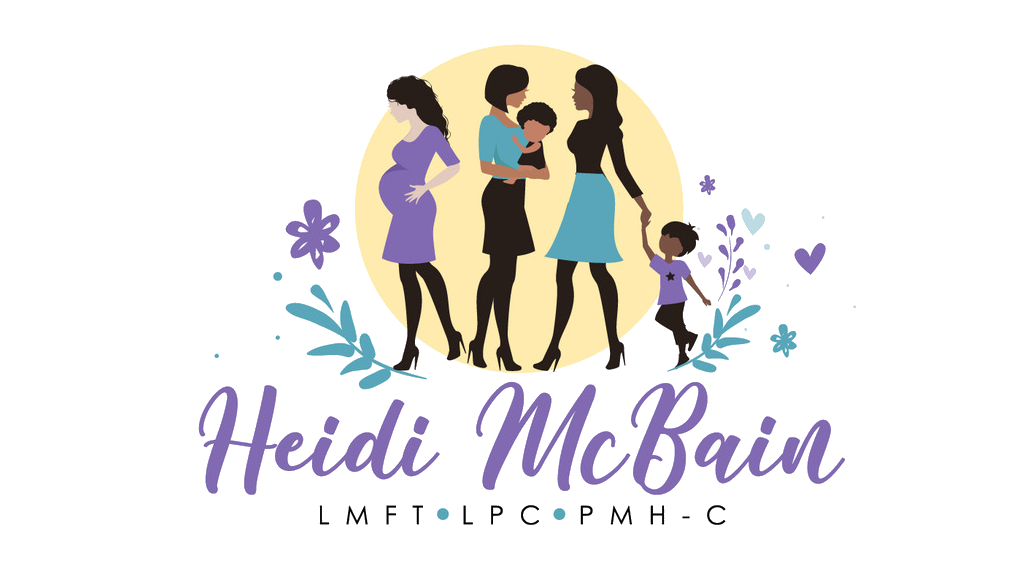
It is not always possible for me to choose love in the midst of challenging situations, but I can definitely try to soften—soften my voice, my touch, my opinion, and my timetable.
-Rachel Macy Stafford
Mom anger is an important topic to address because this emotion shows up in postpartum and throughout motherhood for all of us. Although anger is one of the four primary feelings, it’s actually considered a secondary emotion. This means there are typically feelings underneath the anger, such as:
- Overwhelm
- Irritability
- Frustration
- Fear
- Grief
- Sadness
- Agitation
- Guilt
- Shame
- Regret
- Hurt
- Pain
- Disappointment
- Loneliness
Mom anger during postpartum isn’t an enjoyable space to be in for any of us. Try viewing your anger as a symptom of something deeper that’s going on. This can help you figure out what needs aren’t currently being met in your life, and what changes will help you take better care of yourself. The hope is that when you’re in a better space internally, you’ll be better able to manage your anger when it shows up in your life. Keep in mind that anger can also be a symptom of postpartum depression.
The Repair
The repair is doing something actionable at a later time to reconnect with our partners/loved ones after doing something we regret such as yelling when we’re angry. This may look like:
- Acknowledging what happened
- Saying you’re sorry
- Explaining why your anger got triggered
- Describing what you’ll do differently in the future to avoid getting so angry again
Example: “I’m sorry I was so grumpy towards you last night. I was feeling tired and drained, and shouldn’t have taken it out on you. In the future, I’ll work on better communicating how I’m feeling.”
After the repair, give your partner/loved ones time and space to process what happened on their own, as well as time and space to talk about what happened with you (when they are ready).
Emotional Flooding
What is emotional flooding? It’s many different emotions hitting you all at the same time. Emotional flooding can show up in postpartum in a lot of different ways:
- Feeling emotionally numb- when all the feelings show up, you shut down emotionally without time and space to process them all.
- Panic- you may feel like a deer caught in headlights, not sure what to do next.
- Overwhelm- not feeling like you can function well; you’re just going through the motions to get through the day.
- Disconnection from others- not being able to connect on a deeper level with those around you.
- Fear- that you won’t be able to break this cycle and you’ll feel emotionally flooded forever.
- Emotional reactivity-concern that you won’t be able to control your emotions when triggered, and that you’ll be incessantly crying or raging at others.
This is part of the fight, flight or freeze response, which shows up when we’re hit with too much stress (or trauma) in life all at once. With practice, you can begin to catch these life stressors early and be able to better take care of yourself, so you don’t get to the point of extreme emotional flooding during postpartum.



